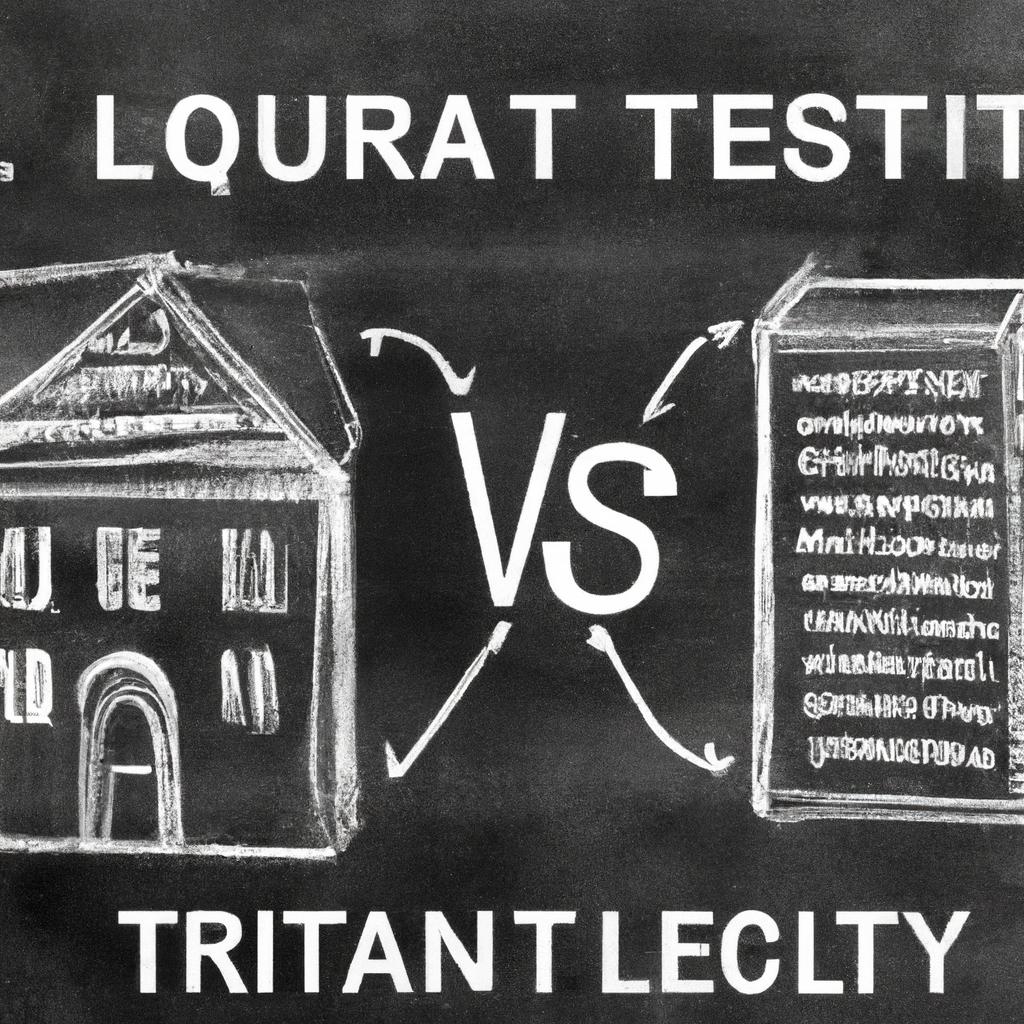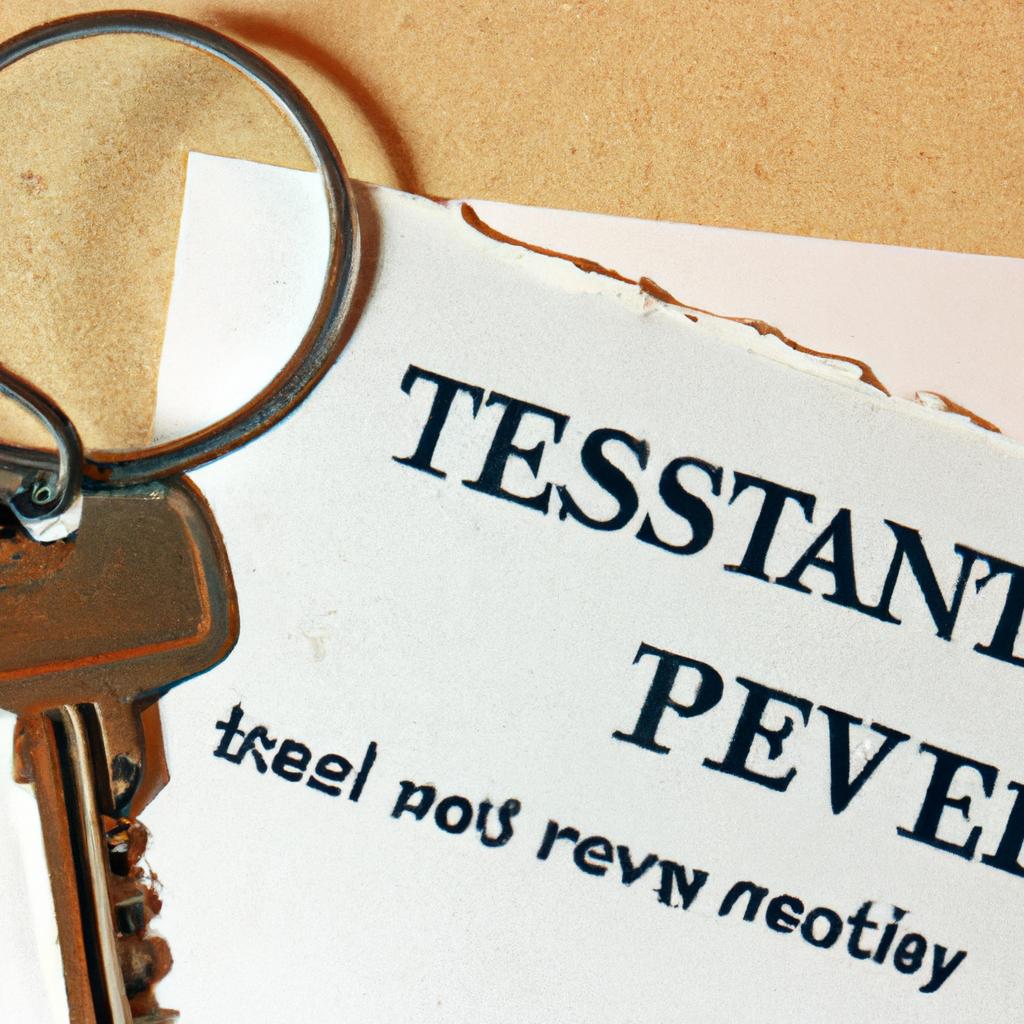When it comes to investing in rental properties, one of the key decisions landlords must make is how to legally structure their investments. Two common options are Limited Liability Companies (LLCs) and trusts. In this article, we will delve into the advantages and disadvantages of each option and help you determine which is the best fit for your rental property portfolio. As experienced lawyers specializing in estate planning and trusts at Morgan Legal Group in New York City, we understand the intricacies of these legal structures and are here to provide you with invaluable insights to make informed decisions for your real estate investments.
LLC vs Trust: Understanding the Legal Structures for Rental Property Ownership
In the realm of rental property ownership, choosing between forming a Limited Liability Company (LLC) or establishing a trust can have significant legal and financial implications. Both legal structures offer unique advantages and disadvantages, and it is crucial for property owners to understand the differences before making a decision.
When considering LLC vs trust for rental property ownership, it is important to weigh factors such as asset protection, taxation, management flexibility, and privacy. An LLC provides liability protection for the property owner’s personal assets, while a trust can offer more privacy and control over the property’s management. Ultimately, the decision between LLC and trust will depend on the individual property owner’s goals and circumstances.

Key Considerations for Opting for an LLC for Rental Property Ownership
When deciding between setting up an LLC or a trust for your rental property ownership, there are several key considerations to keep in mind. One important factor to consider is liability protection. An LLC can help shield your personal assets from any potential legal claims or debts related to the rental property. This means that if there is a lawsuit or other financial issues, only the assets held within the LLC are at risk, not your personal property. This can provide peace of mind and security for landlords.
Another factor to consider is taxation. LLCs offer flexibility in how they are taxed, allowing owners to choose between being taxed as a partnership or a corporation. This can provide potential tax benefits and savings depending on your specific financial situation. Additionally, LLCs are typically easier to set up and maintain compared to trusts, which can involve more complexities and expenses. Overall, carefully weighing these factors can help you make an informed decision on whether an LLC or a trust is the right choice for your rental property ownership.

The Benefits of Using a Trust for Rental Property Ownership
When it comes to owning rental property, there are several benefits to using a trust as opposed to an LLC. One major advantage is the ability to avoid probate, ensuring a smooth transition of ownership in the event of your passing. By placing the property in a trust, you can dictate exactly how and when the property will be transferred to your beneficiaries, without the need for court involvement.
Another benefit of using a trust for rental property ownership is increased privacy. Unlike an LLC, which requires public disclosure of members and managers, a trust allows you to maintain anonymity and keep your personal information confidential. This added layer of privacy can be particularly beneficial for high-profile individuals or those who simply prefer to keep their financial affairs private.

Recommendations for Choosing Between an LLC and a Trust for Your Rental Property
When deciding between an LLC and a trust for your rental property, there are several important factors to consider. While both options offer asset protection and liability benefits, they have distinct differences that can impact your overall estate plan. Below are some recommendations to help you make an informed decision:
- Consider Your Asset Protection Needs: Determine the level of protection you require for your rental property. An LLC can shield your personal assets from potential lawsuits or debts related to the property, while a trust offers privacy and can help avoid probate.
- Understand Tax Implications: LLCs are pass-through entities, meaning profits and losses flow through to the individual owners, while trusts may offer tax benefits such as avoiding capital gains tax upon the sale of the property. Consult with a tax professional to determine the best option for your specific financial situation.
Q&A
Q: What are the main differences between setting up an LLC and a trust for rental property ownership?
A: An LLC provides liability protection for the property owner, while a trust offers privacy and flexibility in estate planning.
Q: How does owning a rental property through an LLC protect the owner?
A: By establishing an LLC, the owner’s personal assets are protected from any legal claims or debts related to the property.
Q: What are the advantages of holding rental property in a trust?
A: Trusts allow for seamless transfer of property ownership, privacy in property ownership, and potential estate tax savings.
Q: Can an LLC be used in conjunction with a trust for rental property ownership?
A: Yes, some property owners opt to set up both an LLC for liability protection and a trust for estate planning purposes.
Q: Are there any specific tax implications to consider when choosing between an LLC and a trust for rental property ownership?
A: Yes, both entities have different tax implications, so it’s important to consult a tax professional or attorney before making a decision.
Closing Remarks
In conclusion, when deciding between using an LLC or a trust for your rental property, it ultimately comes down to your individual circumstances and long-term goals. While an LLC can provide liability protection and tax advantages, a trust offers privacy and flexibility in estate planning. Whichever option you choose, be sure to consult with a legal and financial professional to ensure you are making the best decision for your investments. Remember, each situation is unique, so take the time to carefully evaluate your options before moving forward. Thank you for reading and best of luck with your rental property ventures!







